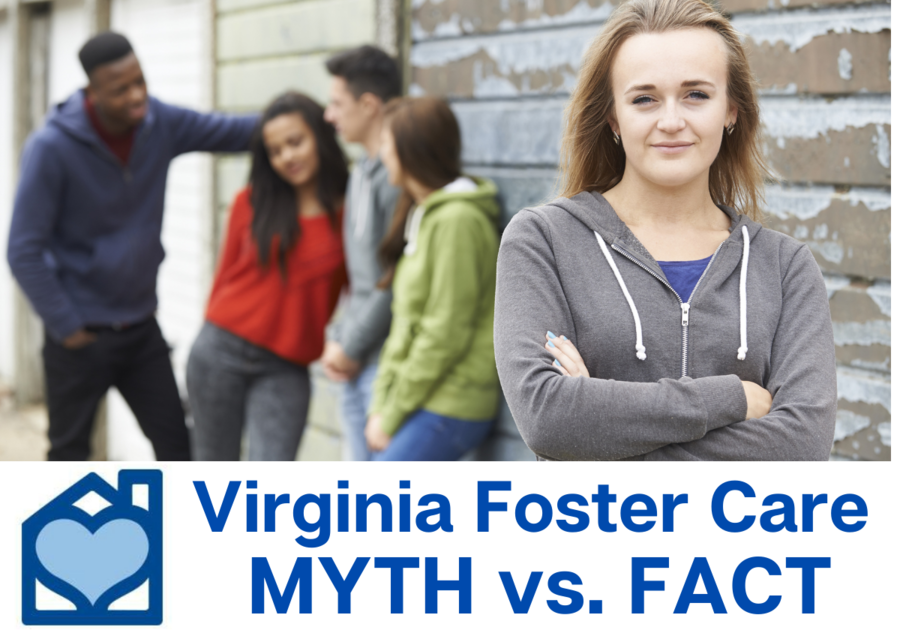In Virginia, the need for supportive, nurturing foster homes is great. Currently, Virginia is ranked the worst in the nation for teens aging out of foster care before they can find permanency. More than ever, DePaul Community Resources needs compassionate individuals who can open their homes and hearts to children in foster care.
There are many myths and misconceptions about what it takes and what it means to be a foster parent. Below, we have outlined some of the most common ones:
Myth: I could never be a foster parent because it would break my heart when the child returned home.
Fact: Even if a foster child is only with you for a short time, or even if you can’t have an on-going relationship with the child, you may be the one person that can make a positive change in that child’s life forever. Children don’t forget that and they often resume contact with foster parents when they get older. By building relationships with biological families, you could continue to have contact with a child even after they successfully reunite with their parents.
Myth: Foster parents have to stay at home with the children and can’t work a full-time job.
Fact: Many foster parents work outside of the home. You will be able to work with the home finder to identify appropriate child care plans – whether that be an actual daycare, or for our older kids, a friend, relative, or another foster parent who will agree to be approved for childcare.
Myth: You must have an income of at least $45,000.
Fact: There are no specific income requirements. Foster parents must demonstrate that they have sufficient income to meet the needs of the family’s monthly expenses.
Myth: You must be married.
Fact: You can be single, married, divorced or widowed.
Myth: You must own your own home.
Fact: You can own or rent a home, trailer or apartment.
Myth: You must have a college degree.
Fact: There are no educational requirements to become a foster parent.
Myth: Foster children must have their own bedroom.
Fact: Foster children may share a room. Children of the opposite gender may not share a room. Foster children can also share a bedroom with biological (or adopted) children who live in the home too as long as they are of the same gender and close in age.
Myth: Children need a mother and father in the home for growth and development.
Fact: Children of same-sex parents adjust well and grow up in the same positive environment as those of heterosexual families. There is no evidence suggesting altered development in children of same-sex couples compared to children of opposite-sex couples.
Myth: Foster parents must carry foster children on their medical insurance.
Fact: Most children in foster care are eligible for Medicaid. Foster parents are NOT required to carry foster children on their medical insurance.
Myth: Teenagers are more difficult to work with than younger children.
Fact: All children in foster care have unique challenges to overcome because of their trauma, and those challenges are usually directly related to their trauma. This is the case regardless of the child’s age. Teenagers are disproportionately in higher need of placement with foster families in part due to misconceptions and stigmas surrounding the difficulty of working with teens.
If you are ready to make a difference in a child’s life, we would love to walk alongside you during the process. For more information, you can visit depaulcr.org or reach out to our regional recruiter Karen at 540-381-1848 ext. 3004 or kbrown@depaulcr.org.
 |
** Many of these myths and misconceptions were originally posted on the Virginia Department of Social Services website.



